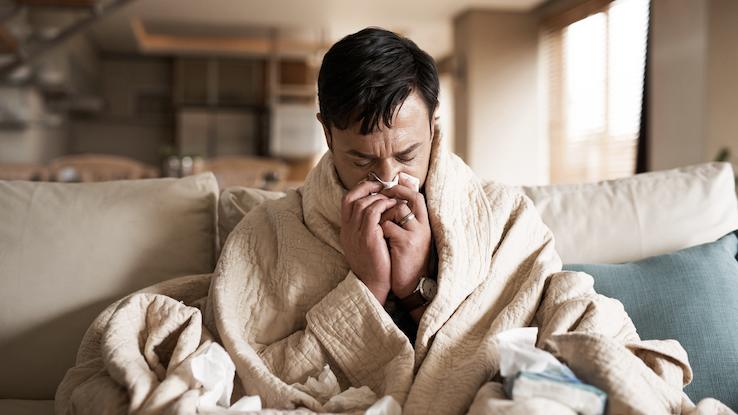
Nasal polyps are soft, swollen growths on the inside lining of your nose or sinuses. They’re usually shaped like teardrops or grapes and they often form in groups. Fortunately, polyps are usually not serious. But you may need treatment to ease your symptoms.
Nasal polyps can affect anyone at any age, but they’re most common in young and middle-aged adults in their 30s and 40s. They’re usually related to health conditions that irritate your nose and airways, like asthma, allergies and certain infections and immune disorders.
Learn about the symptoms and treatments for nasal polyps. Then find tips to prevent nasal polyps from coming back.
What Are the Symptoms of Nasal Polyps?
Smaller polyps may not cause any symptoms at first. Or it may feel like you have a cold or a sinus infection that won’t go away. But while a cold usually gets better in a few days, nasal polyps won’t clear up without treatment. As the polyps grow larger or increase in number, they can block your nasal passages. This makes it hard to breathe and may lead to more serious complications.
Symptoms of nasal polyps include:
- Blocked, stuffy or runny nose
- Post-nasal drip (feeling like you constantly need to clear your throat or swallow)
- Dulled or lost sense of smell or taste
- Pressure or pain around your face, including forehead and upper teeth
- Headaches
- Snoring
- Frequent nosebleeds
If you have any of these symptoms and they last longer or feel more severe than a normal cold, talk with your doctor.
How Will a Doctor Diagnose Nasal Polyps?
To check for nasal polyps, your doctor may:
- Ask about your medical history — including history of asthma, allergies or recent illnesses
- Ask about your symptoms and how long you’ve had them
- Look inside your nose using a thin, flexible tube with a tiny camera
- Get a CT scan to pinpoint the size and location of polyps in your sinuses
If you have nasal polyps, your doctor can recommend the right treatments for you.
How to Treat Nasal Polyps
Treatment for nasal polyps depends on the size and number of polyps and how severe your symptoms are. You can usually treat polyps with medicines. In some cases, your doctor may recommend surgery.
Medicines to Treat Nasal Polyps
Medicines to treat nasal polyps include:
- Nasal steroid sprays or drops. Your doctor will probably prescribe a steroid nasal spray to reduce swelling and clear blocked nasal passages. In many cases, these sprays or drops can shrink polyps or get rid of them completely.
- Steroid pills. If a nasal steroid spray doesn’t work, your doctor may prescribe a steroid pill. Steroid pills can have serious side effects, so you would probably only take them for a short time.
- Injections (shots). If you have severe nasal polyps or a condition called chronic sinusitis, your doctor may give you a steroid injection or an injection of another medicine called dupilumab (Dupixent).
- Other medicines. Your doctor may also prescribe medicines to treat other health conditions that can cause nasal polyps. For example, you may need allergy medicines or antibiotics for a bacterial infection.
Surgery for Nasal Polyps
If the medicines don’t work after several weeks or your polyps are very large, your doctor may recommend surgery to remove them.
The most common procedure to treat nasal polyps is endoscopic sinus surgery. In this procedure, your surgeon inserts a thin, lighted tube into your nasal passages. The tube has tiny instruments at the end, which the surgeon uses to remove the polyps. This surgery is usually an outpatient procedure, meaning you can go home the same day.
After surgery, most people see an improvement in their symptoms. But you may need to continue taking medicines. And it’s possible for nasal polyps to grow back, even after surgery.
Remember, both medicines and surgery come with risks and side effects. Discuss the pros and cons of each treatment option with your doctor.
How to Prevent Nasal Polyps from Coming Back
It’s not always possible to prevent nasal polyps. But you may be able to lower your risk. Try these steps:
- Manage asthma and allergies. Follow your doctor’s instructions for treating and managing these conditions.
- Make sure to take prescribed medicines. If your doctor prescribes medicines like steroid nasal spray, take them according to the instructions.
- Avoid things that irritate your nose. Try to avoid dust, tobacco smoke, chemical fumes and anything you’re allergic to.
- Wash your hands. Infections can cause nasal polyps. And one of the best ways to protect yourself from bacteria and viruses is to wash your hands regularly — and avoid touching your nose and mouth.
- Use a humidifier. Using a humidifier in your home may help moisten your breathing passages, improve the flow of mucus from your sinuses and help prevent blockages and inflammation that can lead to polyps.
- Use a saline nasal spray. Use a saltwater (saline) spray or nasal wash to rinse your nasal passages and remove things that might irritate them. You can buy these sprays over the counter at the pharmacy.
Resource Links:
- “Nasal Polyps” via National Health Service
- “Nasal Polyps: Symptoms, Causes, Treatment & Prevention” via Cleveland Clinic
- “Nasal Polyps” via MedlinePlus
- Nasal Polyps” via Mayo Clinic
- “Nasal Polyps” via Johns Hopkins Medicine
- “Nasal Polyps” via Cedars-Sinai
- “Nasal Polyps” via ENT UK





